The 12th BJIFF
Film Power Forum—Exploration, Pursuit and Creation of “Superio r” Film Productions, Look up to “Superior” Films and Embark on Journey Together!
In order to implement General Secretary Xi Jinping’s important instructions on literary and artistic work, and further promote high-quality growth of China film industry, the 12th BJIFF Film Power Forum—Exploration, Pursuit and Creation of “Superior” Film Productions organized by the Central Academy of Drama was grandly convened on August 16 at Beijing Yanqi Lake International Convention & Exhibition Center.
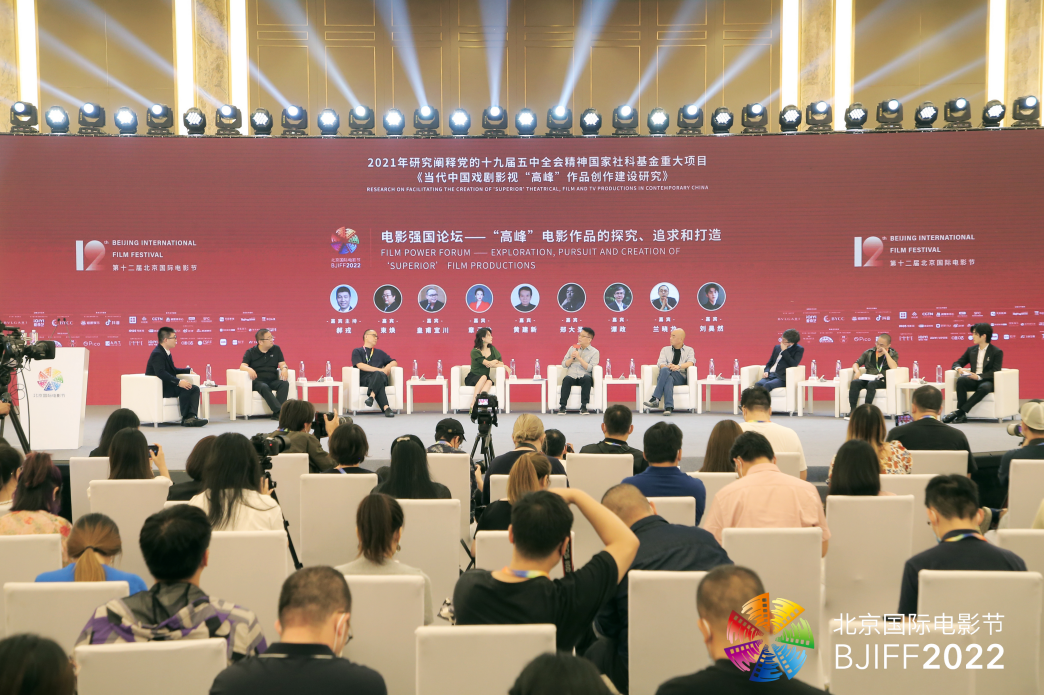
Leaders and guests present include Li Xiaoming, Member of the Party Leadership Group and Vice President of Beijing Radio & Television Station, and Deputy Secretary General of the Organizing Committee of the 12th BJIFF, Huang Jianxin, renowned director, screenwriter and producer, Zhang Ziyi, famous actress and director, Zheng Dasheng, famous director, Liu Haoran, renowned actor, Shu Huan, famous screenwriter and director, Lan Xiaolong, famous screenwriter, Huangfu Yichuan, president and editor-in-chief of Contemporary Cinema, and Tan Zheng, editor-in-chief of Film Art. Based on the study and interpretation of the spirit of the 5th Plenary Session of the 19th CPC Central Committee and the major project of the National Social Science Found of China Research on Facilitating the Creation of “Superior” Theatrical, Film and TV Productions in Contemporary China (Project No.: 21ZDA078), the forum specially invited Hao Rong, chief expert of the project and President of Central Academy of Drama as guest moderator.
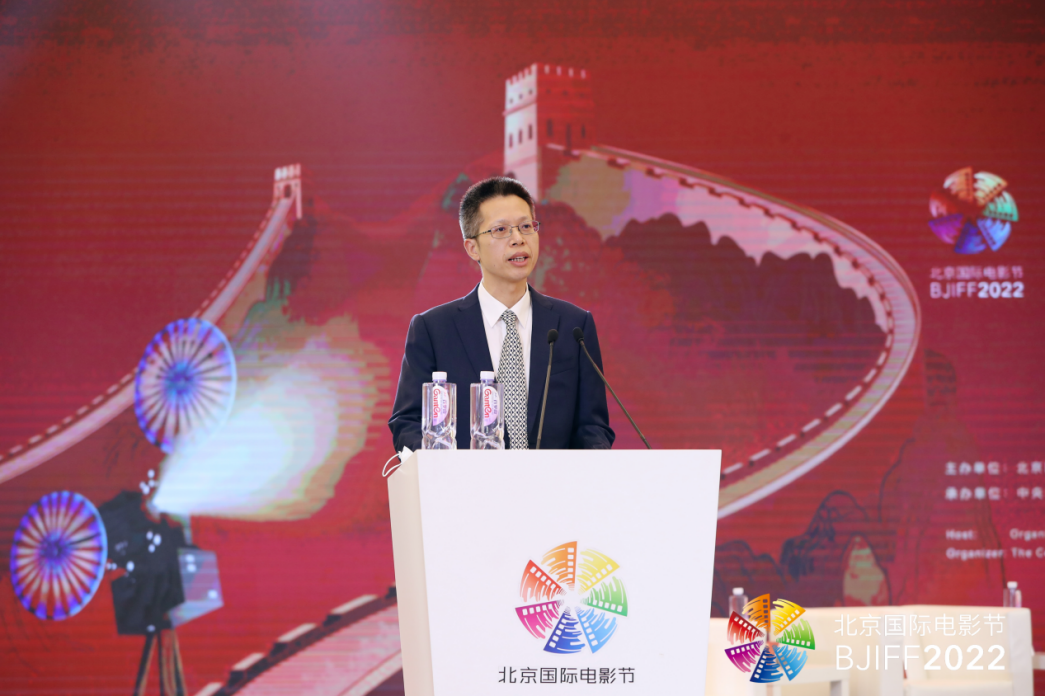
As Li Xiaoming stated in his speech, culture is the spiritual lifeline of a nation, and a beacon of the era. According to General Secretary Xi Jinping, the literary and artistic achievements of an era are mainly measured by works. Only by injecting beautiful values into beautiful art will works have a soul. The values and art complement each other, and render works timeless. We shall remember the General Secretary’s instructions, adhere to people’s position, uphold the promotion of righteous ways, stick to integrity and innovation and tell good Chinese stories, and make films up to missions and era for people that are greatly artistic, state-of-the-art and well produced.
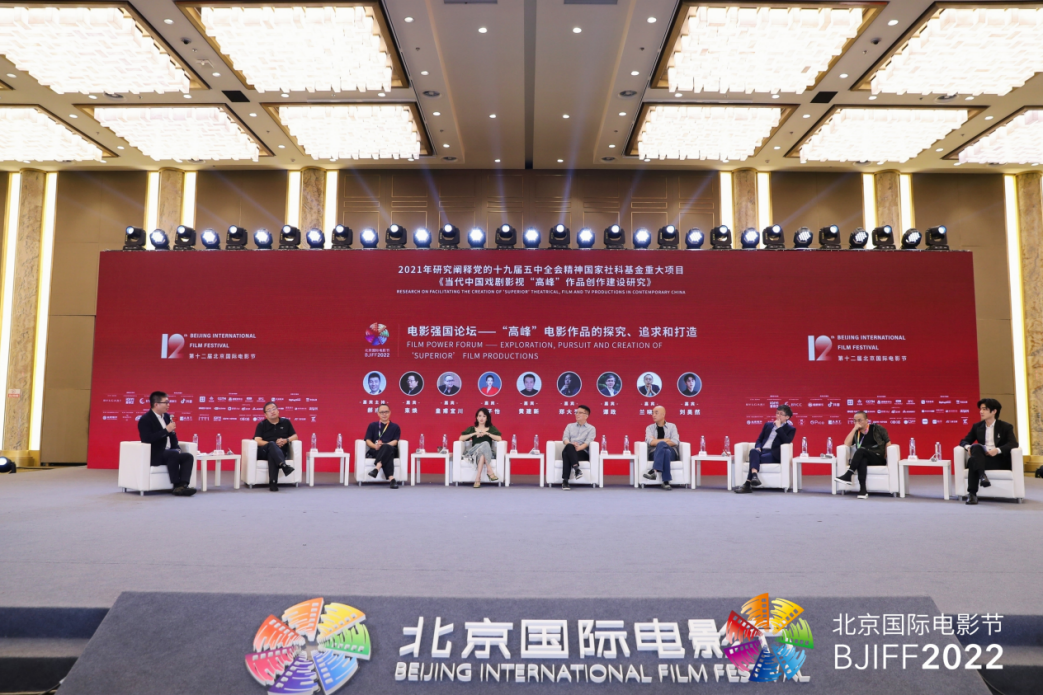
In the discussion session of the forum, top film experts and artists from the industry discussed hot topics such as “superior” film creation, China’s influence going global, and rating of Chinese “superior” films in the hope that pathways, wisdom and power may be provided for multidimensional development of literature and art in the new era.
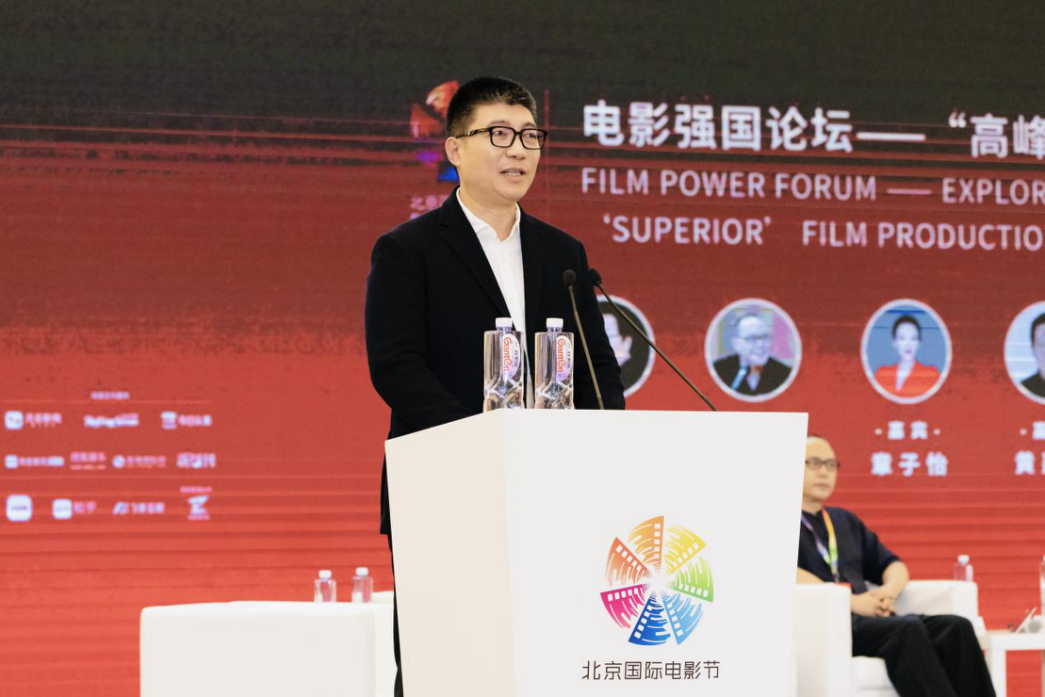
According to Hao Rong, “superior” films refer to those with sublime ideology, cutting-edge awareness of the era, rich ethnic background, and ultimate pursuit of art. The theme of the forum, i.e. “Exploration, Pursuit and Creation”, is well aligned with the motto of Central Academy of Drama—“Taking Truth, Creation, Perfection”. Taking truth means seeking truth and exploring “how to define ‘superior’”; Creation means creating truth and pursuing “superiority”; Perfection means constant honing and success, and the question of “how to build ‘superiority’” will be asked. As he stated, the history of Chinese films reflects the course of Chinese filmmakers' pursuit of “superiority”. “High standards only ensure mediocre results”. Only by bearing the pursuit of “superiority” in mind can we make more “superior” productions on an already high basis.
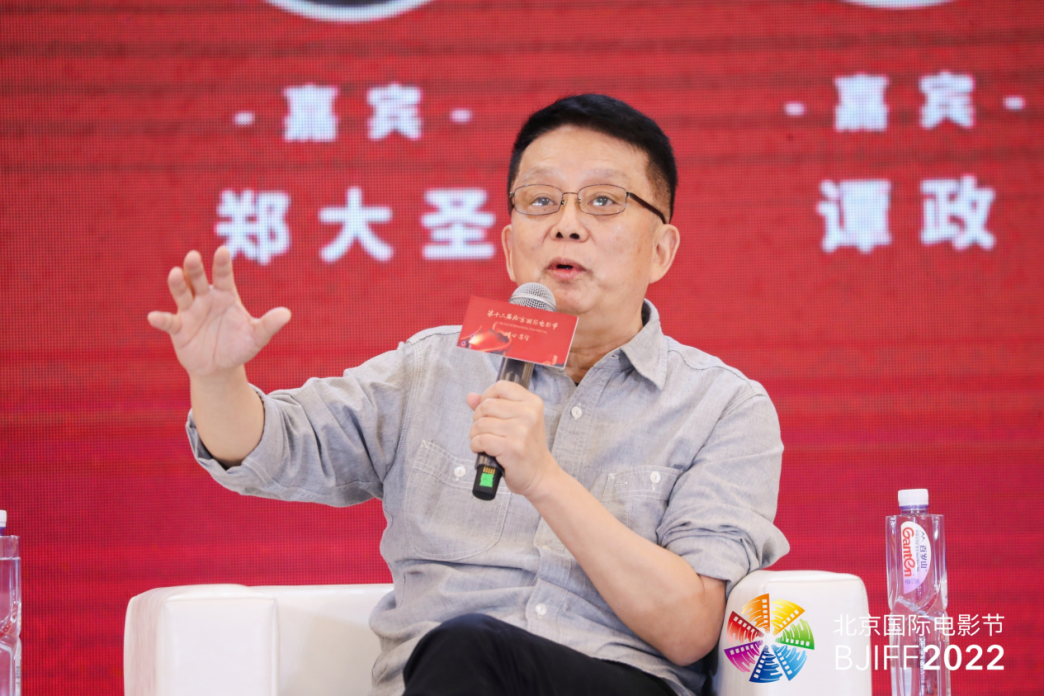
In Huang Jianxin’s view, a “superior” film entails gigantic collisions inspired by the world, history or mind. Meanwhile, “superiority” is there to be surmounted. A team with good stories, care for the people and artistic imagination, open mindset and free spirit can climb up step by step. That’s exactly what filmmakers need. Get united and surmount “superiority”. It’s the responsibility and opportunity for the filmmaking community.
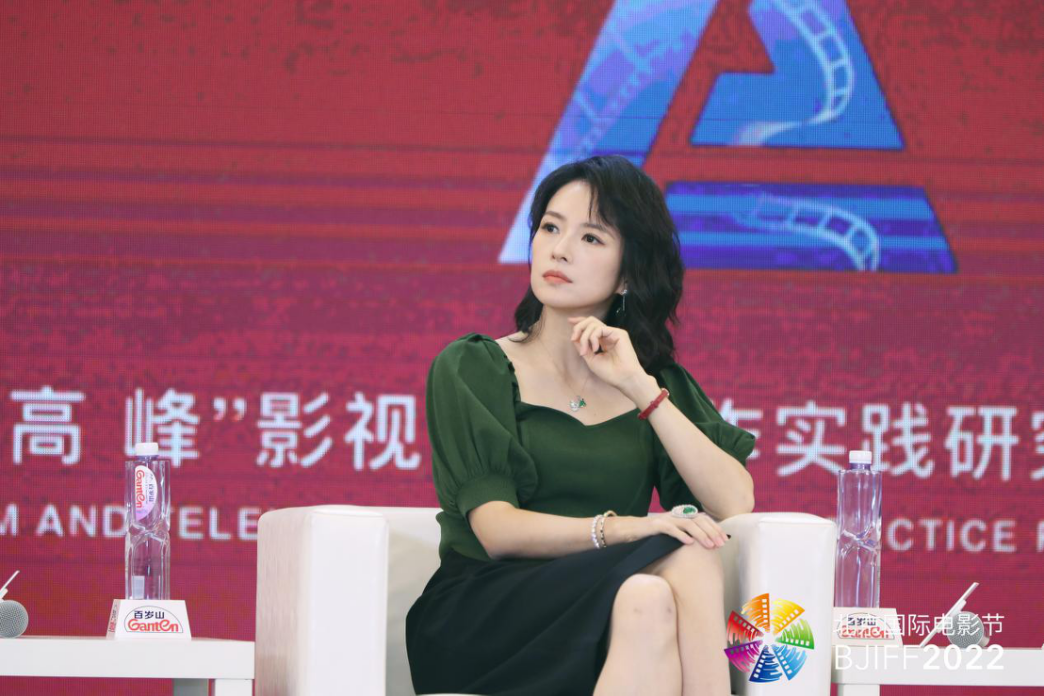
Zhang Ziyi elaborated on her opinion from the perspective of performing arts. She emphasized the importance of professional capabilities and resolve in current creative environment, and mentioned the scarcity of “superior” films. As she indicated, unforgettable and relatable performance is almost “superior” performance, but it cannot be reached by a single person. Rather, collective work is required. As an actress, she explained the importance of “flow state”, through which full immersion in the role can be achieved, and unexpected performance will be delivered.

Based on years of creative experience, Zheng Dasheng indicated that “superior” film creation must be implemented. The films should relate to universal human emotions, and embody Chinese-specific ideology and emotions. He also stated that “time” is a key factor to tell if a film can be named “superior”. It can never be self-named. The film has to be up-to-date and timeless. The “superior” results from the mutual choice of creation and the era.
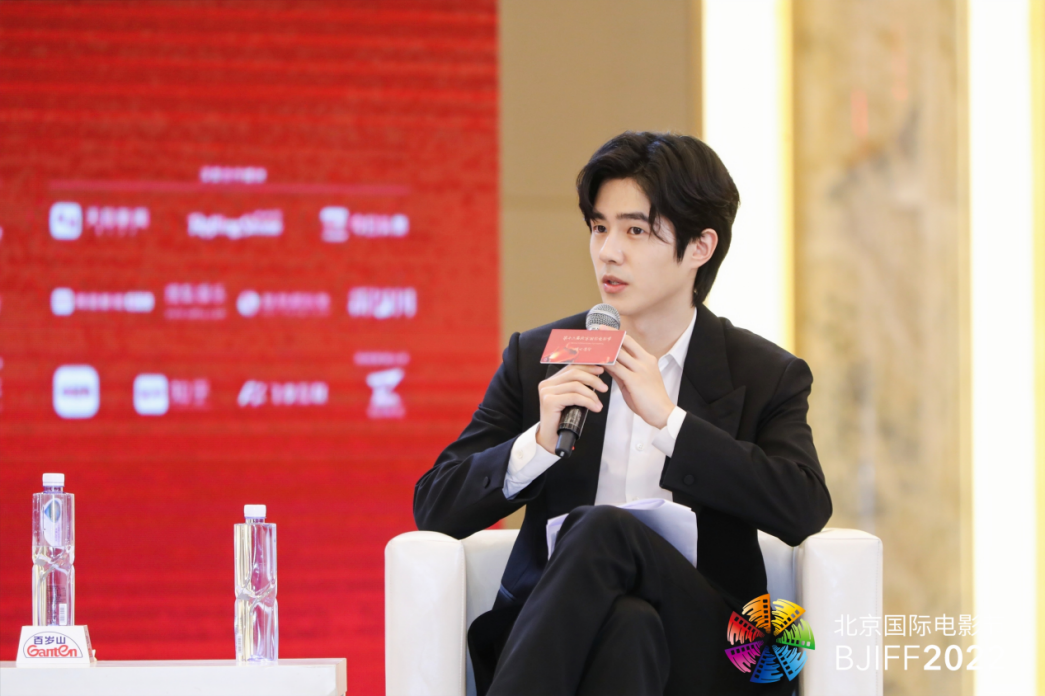
As an outstanding representative of young actors, Liu Haoran believes that the performance in “superior” films can stand the test of time and linger on in the memory of the audience permanently and continuously. As for the role of youth in the creation of “superior” films, based on his roles such as Su Yu in The Founding of an Army and Liu Renjing in 1921, he suggested that young actors should have a fearless spirit and abundance of exploration and curiosity.
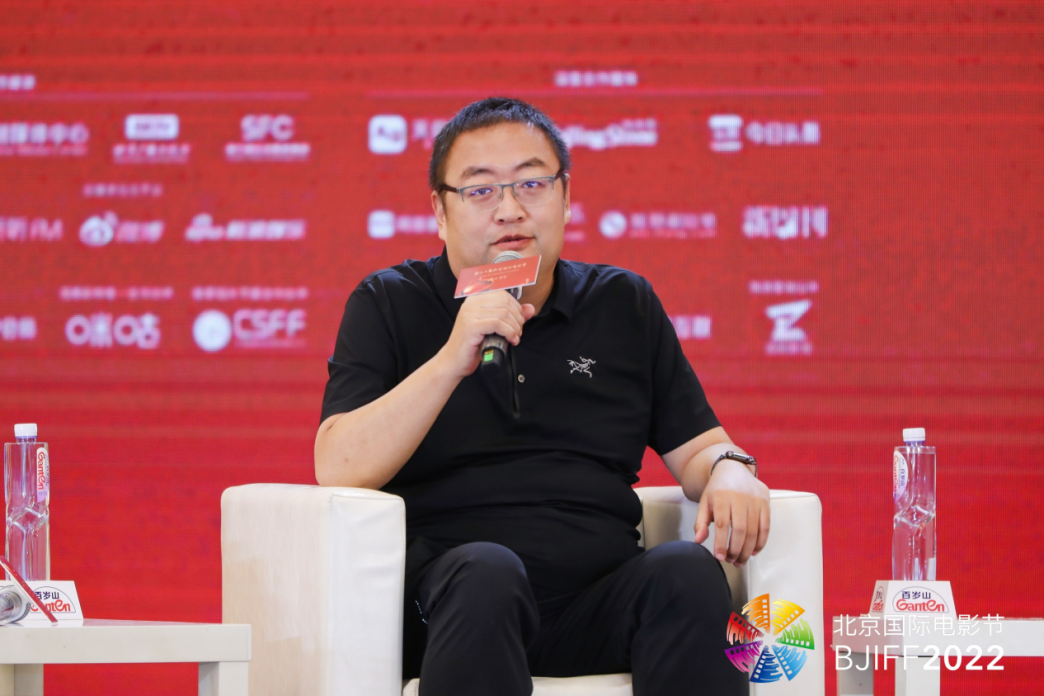
In terms of screenplay, Shu Huan believes “superior” screenplay entails accurate genre, clever writing techniques and values. It takes quantity of works before reaching the “superior”. Young filmmakers should devote their passion and creativity to creation. Only solid basis can support real “superior”. He mentioned that the growth of short contents doesn’t necessarily challenge comedies. Instead, the former leads to more pure comedy creation with live characters, complete plots and impressions.

With years of experience in creation of military works, Lan Xiaolong shared his experience and insights. With respect to the definition of “superior” film, in his opinion, films are first social studies and culture, that is, culture explains humanity. Films that truly embody civilization can be referred to as “superior”. Meanwhile, “superior” films need circulation and synergy of commercial attributes, but more importantly, leave deep impression on the audience, and stand the test of time.
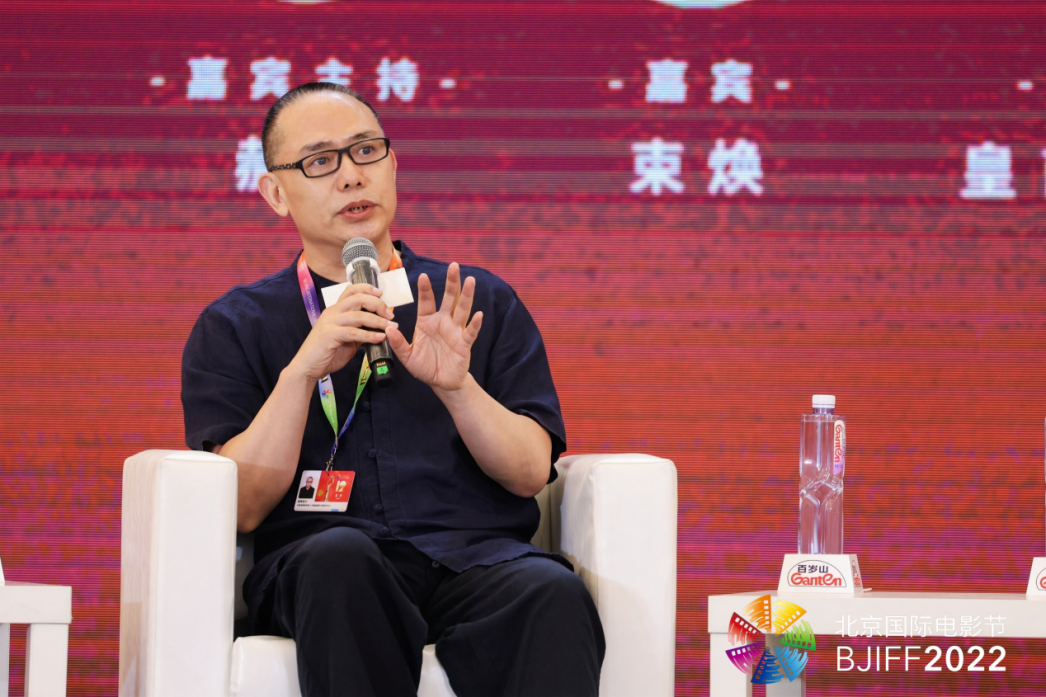
Huangfu Yichuan summarized the status quo of “superior” film creation at the frontline of academia. In his opinion, the discussion about “superior” films involves retrospect of fully expressive previous works. The expressiveness refers to the groundbreaking artistic nature that surpassed concurrent works, had huge impacts on following generations, and reflection of human emotions and spiritual world. As time goes by, and society grows and changes, they show increasing artistic and humanity values, become artistic treasure and cultural legacy of a nation or even the mankind.
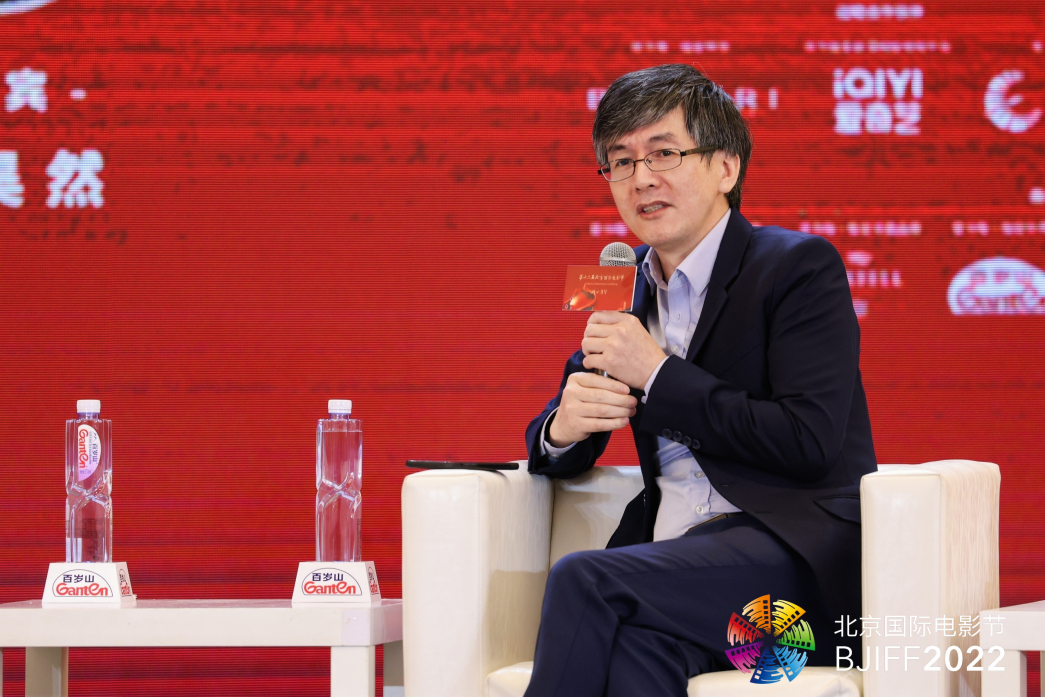
From a theoretical perspective, Tan Zheng looked at the path of Chinese “superior” films, and suggested that profound thoughts, exquisite art and excellent production are the three criteria for “superior” films. At the same time, “superior” films must present classic artistic images, beauty of humanity and in-depth thinking. In order to set up the film “pyramid”, we need to make the foundation solid, solve existing problems in China film industry at this stage, and welcome opportunities of reaching the peak of the pyramid.
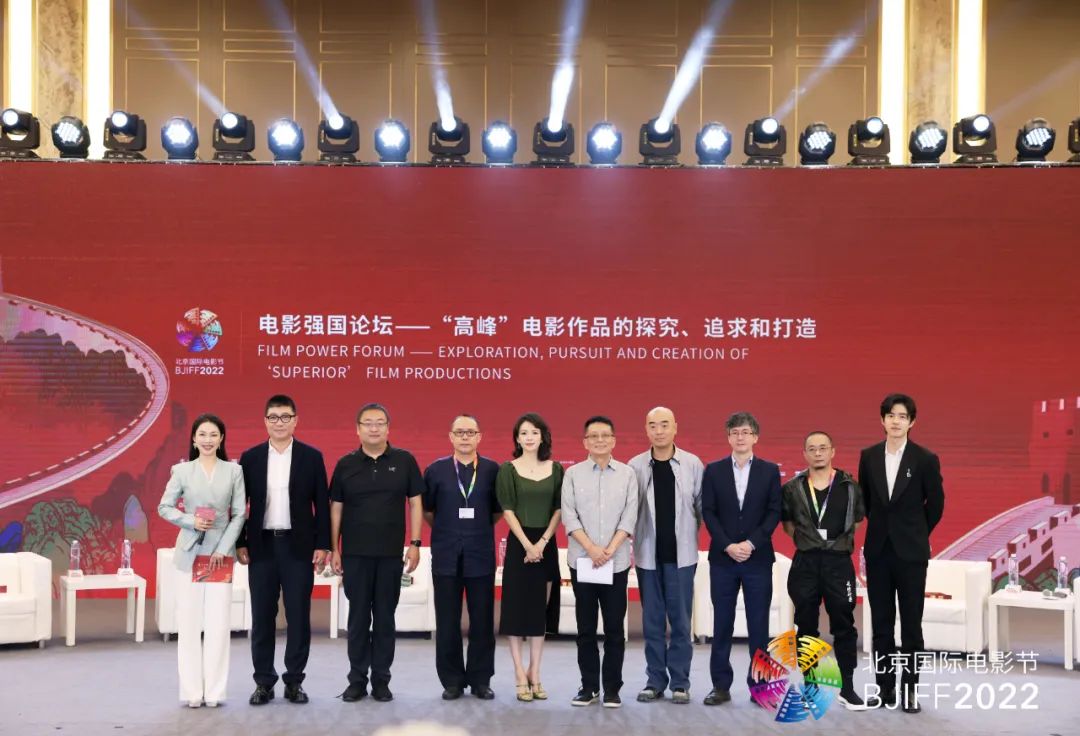
At the end of the forum, Hao Rong concluded that throughout the history of Chinese cinema, one “superior” work after another has stood timeless. The “superior” seems unattainable but a thousand-li journey starts from the first step. Despite hardships of beginning the undertaking, we shall spare no efforts. The forum integrates review of the past, reflection on present and outlook for future. It’s a beneficial exploration of theory and practice. Professionals in the literary and artistic circle should keep enriching their creative experience, look up to “superiors” and embark on the journey together!
